It’s fall and apples are in season!
When we think of apple pie, most of us think of America. It’s right up there with bald eagles, Mount Rushmore, and Abe Lincoln’s beard. Apples have made frequent appearances throughout the history of Western art and iconography, and we enjoy its pie for major holidays like Fourth of July and Thanksgiving. It was only recently that I learned the origins of this classic fall food actually began elsewhere. In fact, apples aren’t even native to North America.😮
I know… right?
So where exactly did apple pie come from and how did it become such a staple of American culture?
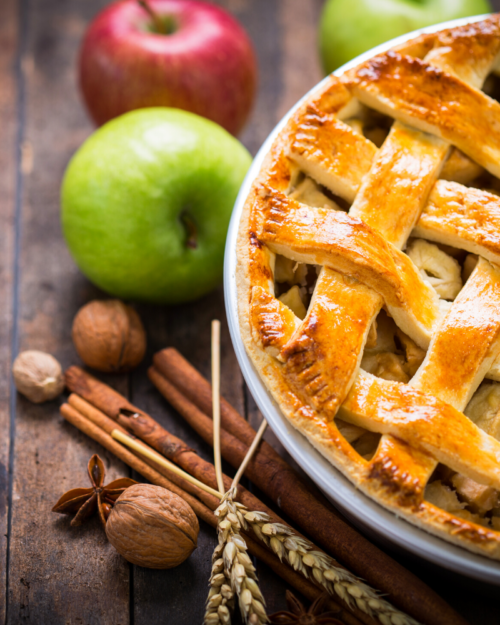
Perhaps the most important element of the classic pie, apples originated in Kazakhstan (Central Asia) some 750,000 years ago. Sour crap apples, to be specific, were discovered growing wild in the forest. By 1500 BC, apple seeds had made their way across Europe where the Greeks, Etruscans and Romans began cultivation. But it was the Romans who carried the seeds to the British Isles, resulting in the flourishing of many varieties in England.
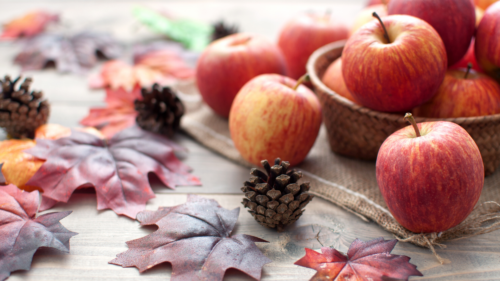
As a result, and built on the culinary influences of France, the Netherlands and the Ottoman Empire, apple pie was first created in England. (Of course, apple pie would not be complete without cinnamon and nutmeg, which came from Sri Lanka and Indonesia, and wheat from the Middle East.) Europeans eventually brought this delicious dish to the colonies where it caught on and grew in popularity. In fact, it made an appearance–twice–in America’s first cookbook, 1796’s American Cookery by Amelia Simmons. While it remained a typical American dish throughout the 18th and 19th centuries, it didn’t gain its status as as national symbol of America until after both world wars in the 20th century.
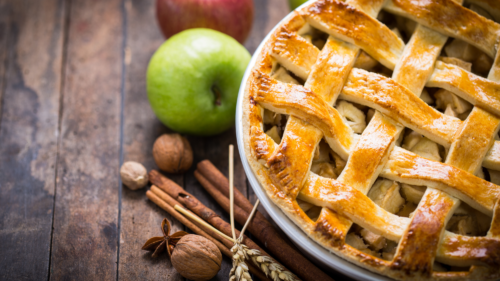
The Health Benefits of Apples
While eating a ton of warm, sugary apple pie (mmmmm…. 🤤) may not be the healthiest thing for you, apples alone contain a WORLD of amazing nutrients.
High In Sugar, But Low On the Glycemic Index

Though apples are rich in glucose, sucrose, and fructose, their glycemic index remains low: between 29 and 44. In fact, some evidence suggests that eating apples can help lower blood sugar levels and protect against diabetes. Certain antioxidants in apples may also slow down digestion and the absorption of sugars.
Apples Are High In Fiber Too
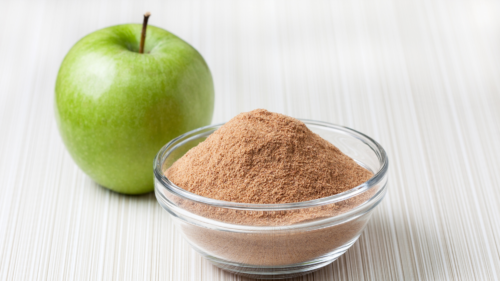
Did you know that a single medium-sized apple contains about 4 grams of fiber? (That’s 17% of your Daily Value!)
In fact, the soluble fiber in apples feeds the friendly bacteria in your gut (where your immune system lives). Fiber also plays a role in healthy weight control by keeping you full longer while lowering blood sugar levels and improving digestion.
They Contain 2 Essential Vitamins

Apples are high in Vitamin C, a common antioxidant found in fruit that helps protect your cells from the effects of disease-causing free radicals. Vitamin C is also vital for the development, growth and repair of all body tissues, as well as the formation of collagen, the absorption of iron, and keeping the immune system running properly.
The main mineral in apples is potassium, which helps to maintain normal levels of cell fluid and supports healthy blood pressure levels.
Apples May Reduce Heart Disease By Almost Half!
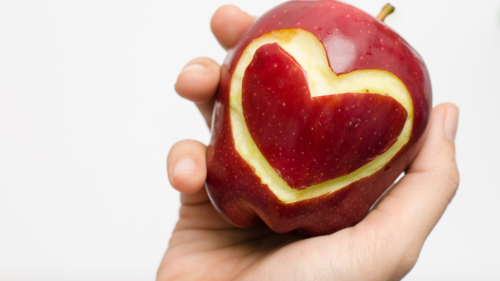
One study on the effect of apples in hamsters found that it reduced arterial plaque buildup in the creatures by 48%! Another study in Finland found a 43% lower risk of heart disease in women and 19% in men who consumed more than 1.9 ounces of apples each day.
What’s more, this study found that eating at least one apple a day lowered the risk of cancer, up to 20%!
Want some other great ways to enjoy the health benefits of apples this fall season?
Check out some of our yummy apple recipes for yourself!
- Pirate Ship Apple Pie Recipe
- Apple Cinnamon Boureka Recipe
- Chicken Sausage with Apple Slaw Recipe
- Apple Ginger Mint Iced Tea Recipe
- Crispy Crepes with Apple, Brie & Prosciutto Recipe
- Warm Fig, Apple & Gorgonzola Flat Bread Recipe
- Easy Apple Tart with Bourbon Whipped Cream Recipe





